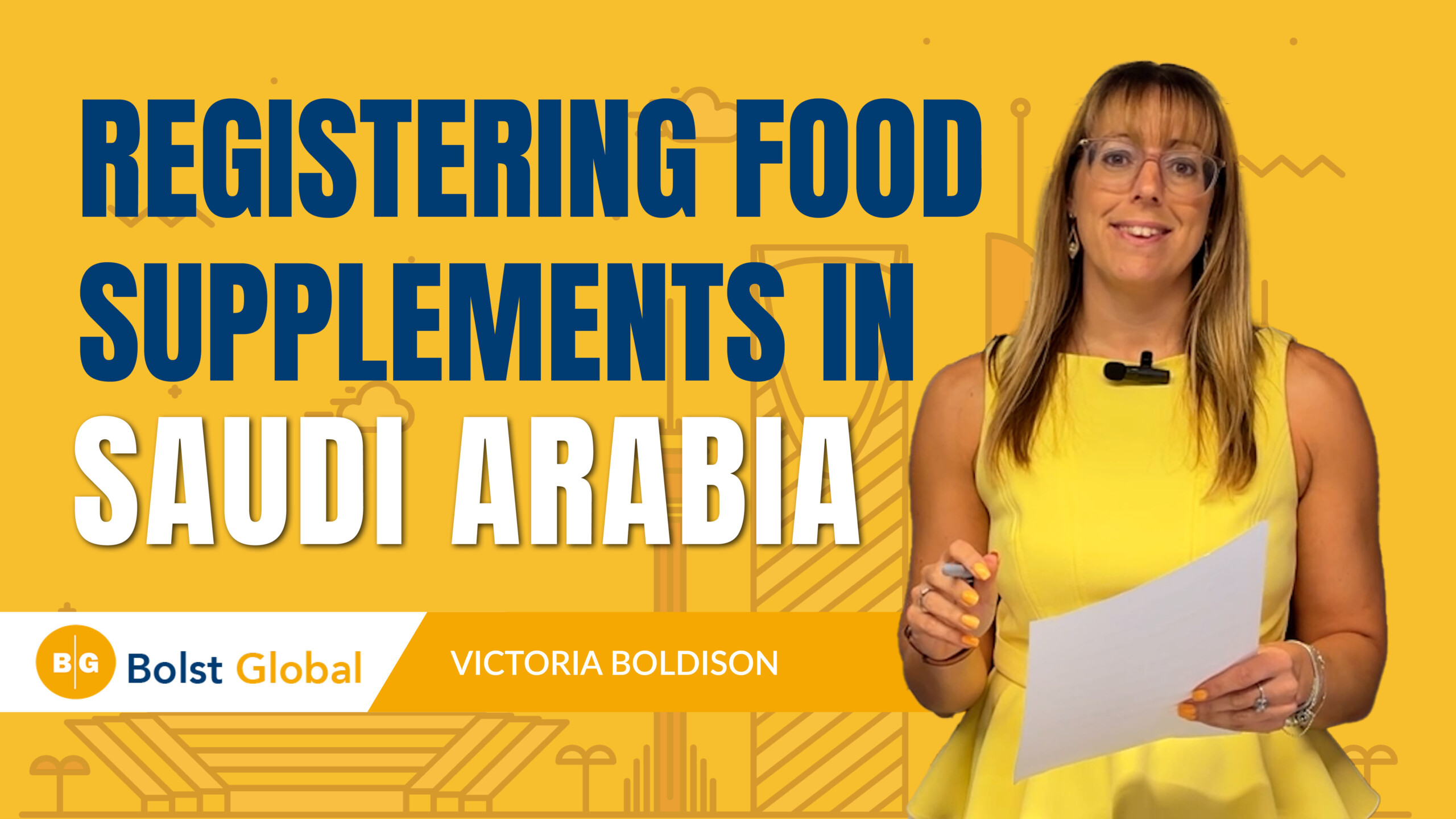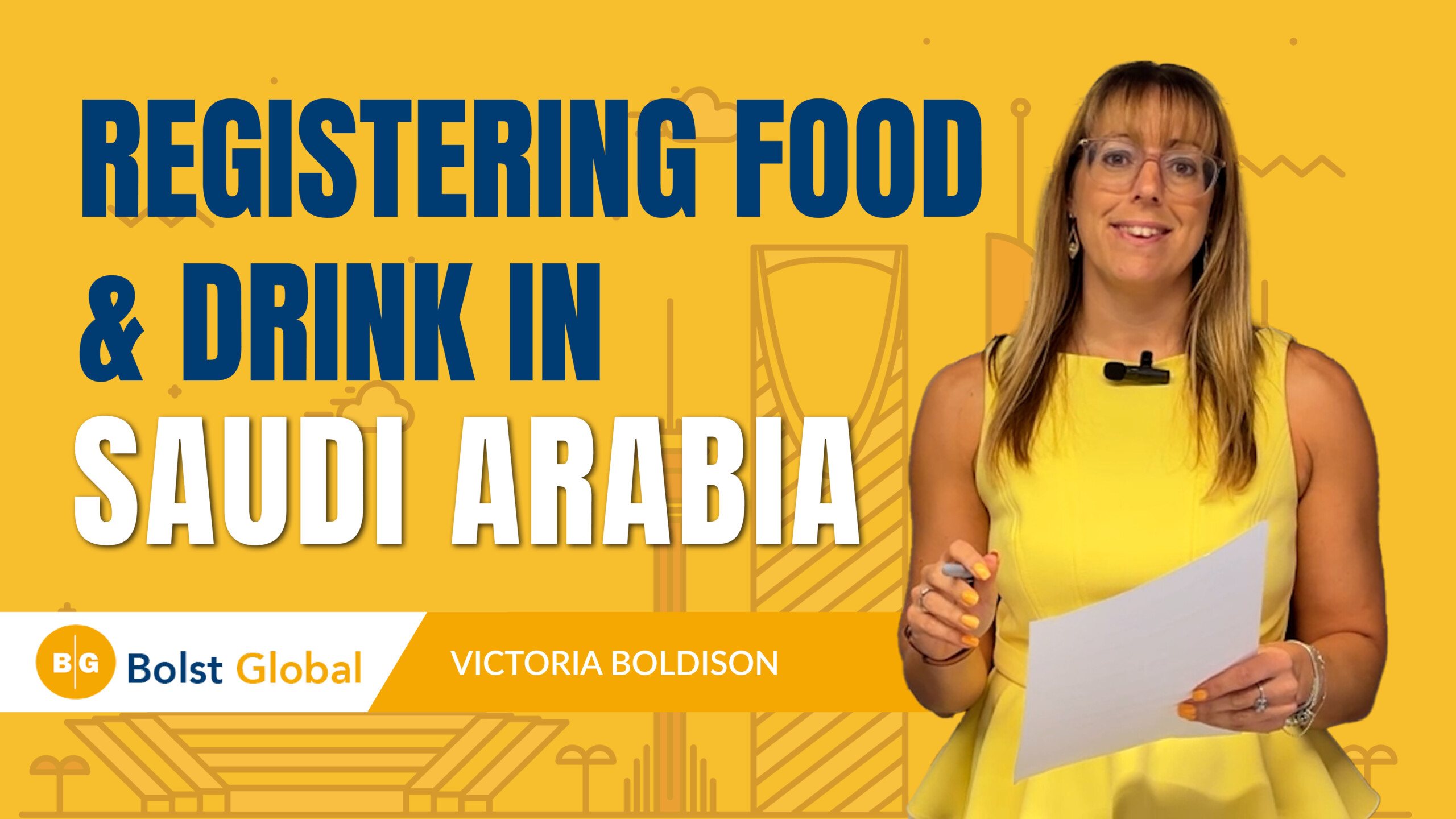Understanding the Organic Market

Before talking about where the opportunities for exporters are when it comes to organic products, it is essential to understand first what organic actually means, and what the requirements are to be certified.
What do ‘Organic Food’ and ‘Organic Agriculture’ mean?
The Department for Agriculture and Rural Affairs (DEFRA) gives us a very good definition of what organic food and organic agriculture are:
‘Organic food is the product of a farming system which avoids the use of man-made fertilisers, pesticides, growth regulators and livestock feed additives. Irradiation and the use of genetically modified organisms (GMOs) or products produced from or by GMOs are generally prohibited by organic legislation.
Organic agriculture is a systems approach to production that is working towards environmentally, socially and economically sustainable production. Instead, the agricultural systems rely on crop rotation, animal and plant manures, some hand weeding and biological pest control’.
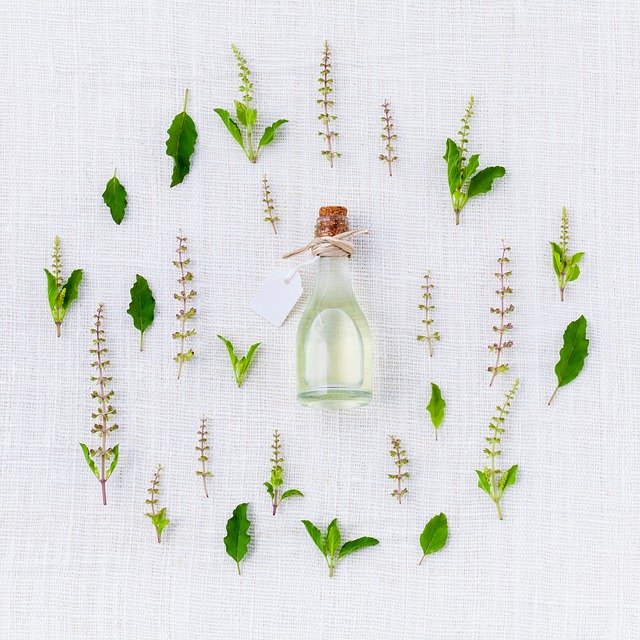
The phrase organic agriculture involves many aspects. It is built on four different principles: health, ecology, care and fairness. In organic agriculture, the basis is to respect the soil, plants and animals, respect the ecological systems and cycles, work with them and not against them. It is also about being fair, responsible, and protecting the health of the environment and the population.
Organic agriculture is all about building a sustainable food production system and involves several interconnected elements such as soil quality, minimising energy use, water pollution and pesticide use, nutritional quality, employment of workers, to just mention a few.
How to get your product organic certified?
In order for your product to be certified/labelled organic, you need to respect a certain amount of requirements.
For example, for a product to be considered organic, 95% of the ingredients must come from organic plants or animals, and no artificial colourings and sweeteners can be used. There are some exceptions though for ingredients that are not organically available. You also need to avoid artificial fertilisers and pesticides, use crop rotation, and control weeds, pesticides and diseases.
Your product will then need to be approved by an organic certification body. A good source of information is the Soil Association, a certification body. It usually takes a couple years to be able to be considered as organic. Once you do get the certification by complying with strict requirements, inspections will be conducted every year to make sure you still comply with the rules. You will be issued with a certificate along with a trading schedule. The certificate will be like a passport to your products that proves that it is indeed organic.
When you consider exporting your organic products, the certificate will be required along with a Certificate of Import, which states that the product is produced to organic standards equivalent to the EU standards.
What is happening in the organic market?
The interest for organic products is not new. It has been around for many years and not only for food and drink products. However, the demand from customers is constantly growing, even more so as they are more and more aware of the health benefits of eating organic products. The Covid pandemic has also boosted the demand for healthier products, people now being conscious that a healthier lifestyle and diet will benefit their immune system tremendously.
The organic market offers many opportunities across the world. Indeed, in 2018, the sales of organic food and drink surpassed the USD100 billion mark, up from nearly USD18 billion in 2000.
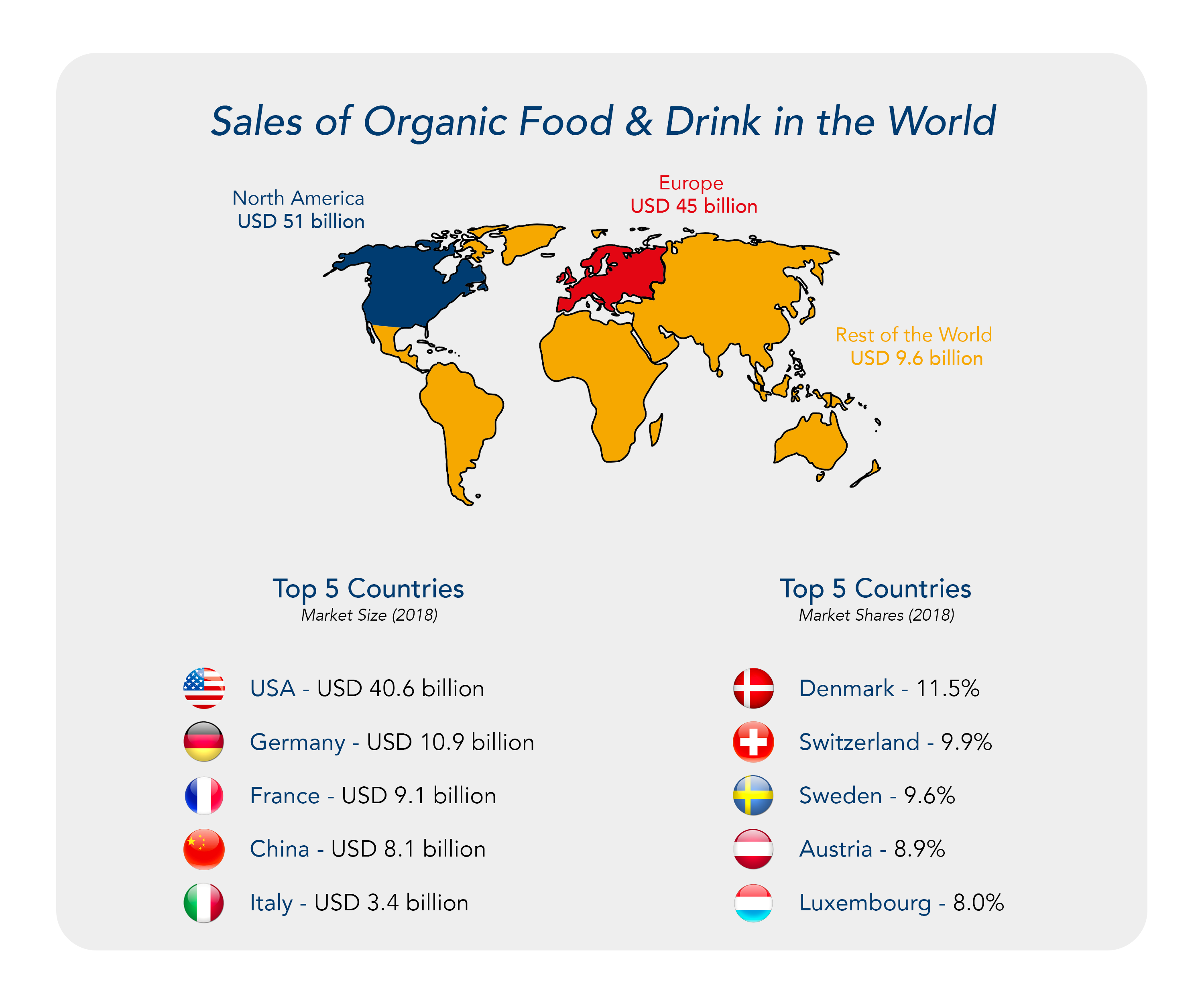
“European countries account for the highest shares of organic food sales as a percentage of their respective food markets.”
Even though the demand is growing all over the world, outside Europe and the US the organic market remains relatively small. However, in regions such as Asia, consumers are becoming more and more aware of the benefits of healthy products. We are now seeing substantial growth in the region, with retailers starting their own organic private label.
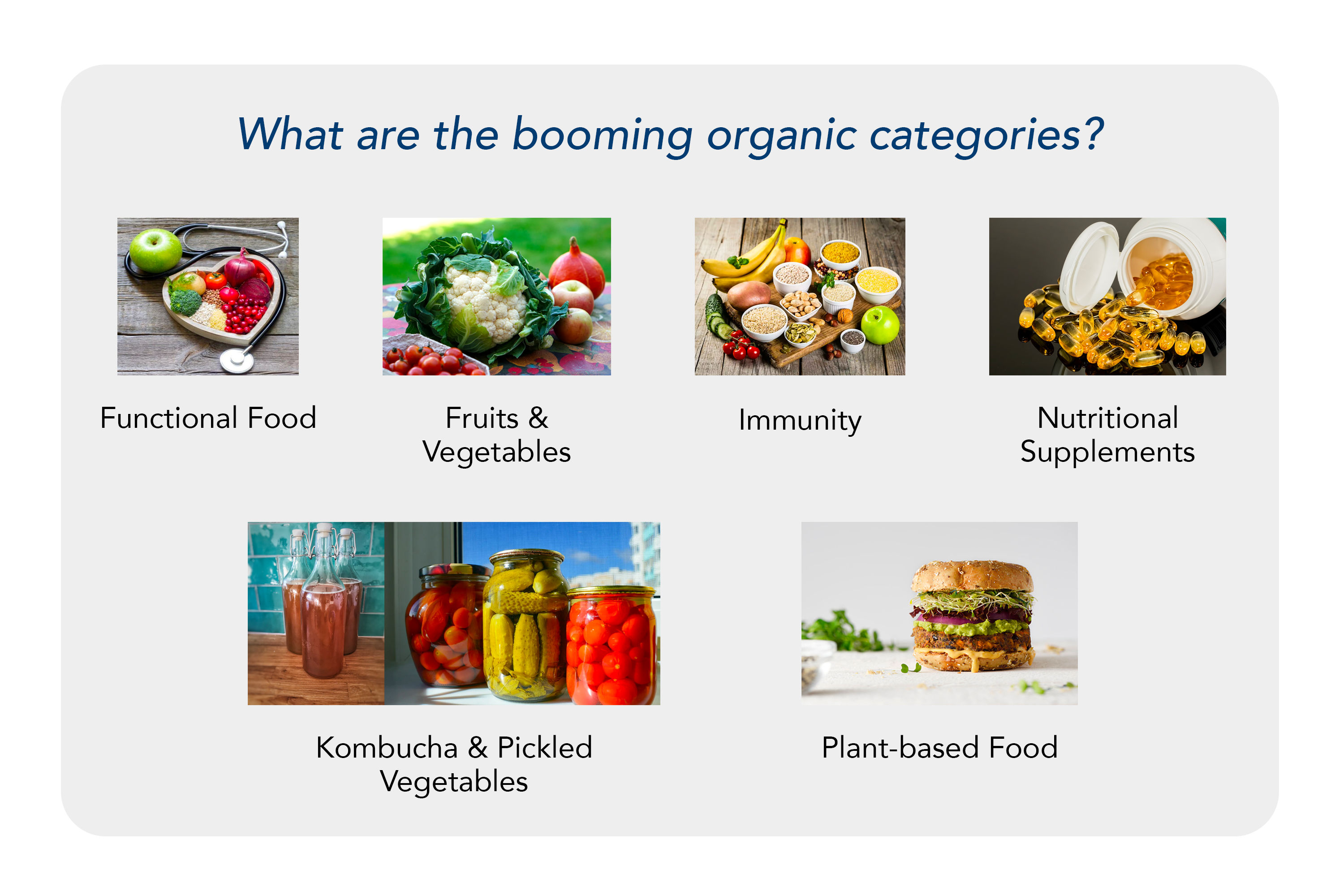
“Consumers are not afraid to spend more to have better quality products.”
Country Focus: The United Arab Emirates (UAE)
The UAE Organic Market in brief:
Health issues such as obesity remain a high concern in the UAE. However, the population is more and more aware of it and is shifting their consumption habits towards healthier products. This change has benefited the organic market greatly, with demand for organic beverages rising. Organic packaged food has also seen an increase in sales, across all age and income groups.
The UAE has recently seen its retailers proposing dedicated organic beverages sections. This has led manufacturers and brands to propose more organic beverages to consumers. Coconut water is especially booming as it is seen as healthier. The introduction of the excise tax has also benefited this category, as the production of sugary drinks has decreased and consumers have bought these drinks less, preferring healthier options.
Rachel’s Organic Co Ltd is leading the organic market in the UAE with market shares of 16.5%. A few other brands are also proposing organic drinks such as organic coffee or organic plant-based and malt-based hot drinks: Whole Earth, Coffee Planet Roastery and Nestlé. Arla National Food Products Co LLC surfed on the organic wave by introducing in 2017 organic milk, which turned out to be very successful and inspired other players such as Arla Little Explorer to produce their own range of organic milk targeted at children.
Growing trends in the organic market:
What to expect in the future?
If you would like to discuss organic certification and opportunities further for your products and want to find out more, get in touch with us.

